Insights from Black Retailers in Massachusetts, Georgia, Pennsylvania, Michigan and California |
|
|
|
Tamika Champion had gone through difficult times — illness, divorce and more. “When I was going through things, God gave me beauty from ashes,” she told herself, citing the Isaiah Biblical verse. “There are so many hurting women out there; why don’t I do something for them?” 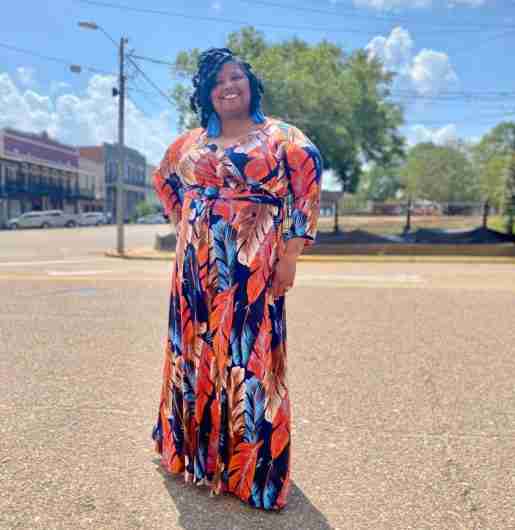 Owner Tamika Champion of Beauty for Ashes Clothing and Candles in Canton, Mass. Champion owns the store with her husband and business partner Jimmy Champion. Owner Tamika Champion of Beauty for Ashes Clothing and Candles in Canton, Mass. Champion owns the store with her husband and business partner Jimmy Champion.“Black-owned businesses are small businesses — Mom and Pop businesses,” observed Jimmy Champion. “To support Black-owned businesses helps these owners and their communities grow.” 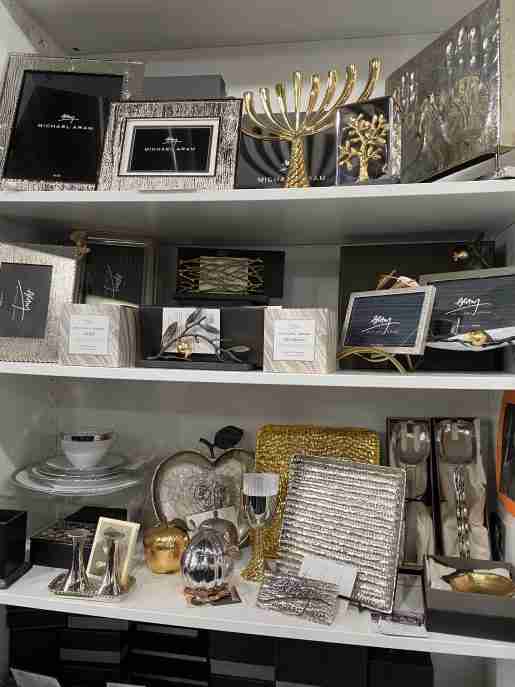 A display of home décor and religious items at ArtLoft. The work of artist Michael Aram is among the merchandise represented. A display of home décor and religious items at ArtLoft. The work of artist Michael Aram is among the merchandise represented.At Beauty for Ashes, shoppers love Tamika Champion’s candles and fragrances for things like healing or romance. Homemade inventory helps compensate for the supply chain disruptions that have caused widespread shortages. In addition to candles, lotions, sugar scrubs and other artisan beauty products, the boutique sells apparel and accessories. “We sell things that help women feel comfortable and be beautiful,” Jimmy Champion said. 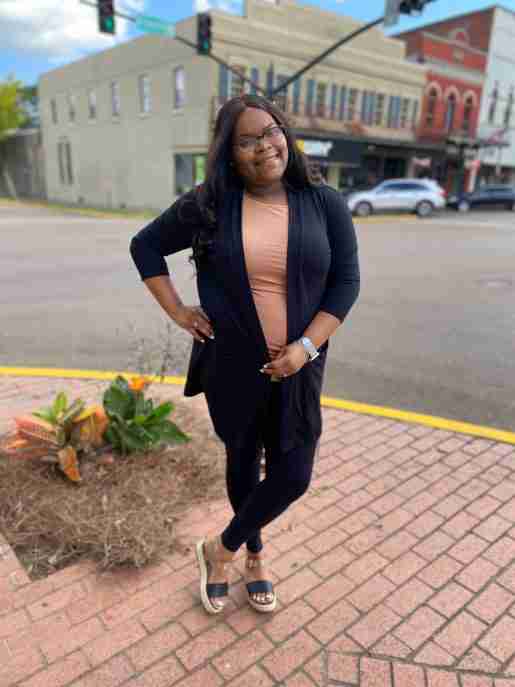 Beauty for Ashes Clothing and Candles Store Manager Darrah McGruder. Homemade inventory has helped compensate for supply chain disruptions. Beauty for Ashes Clothing and Candles Store Manager Darrah McGruder. Homemade inventory has helped compensate for supply chain disruptions.After two decades in the suburbs, Adadevoh-Woods wanted to be part of Detroit’s urban renaissance and moved into the 1,000-square-foot downtown storefront. She sells a mix of fashion, home décor, shoes and Judaica (Jewish ritual and art objects). “I’m all about inclusion,” Adadevoh-Woods said of this last category, noting that many Jewish patrons have become friends over the years. “I saw the need. I thought, why not?” 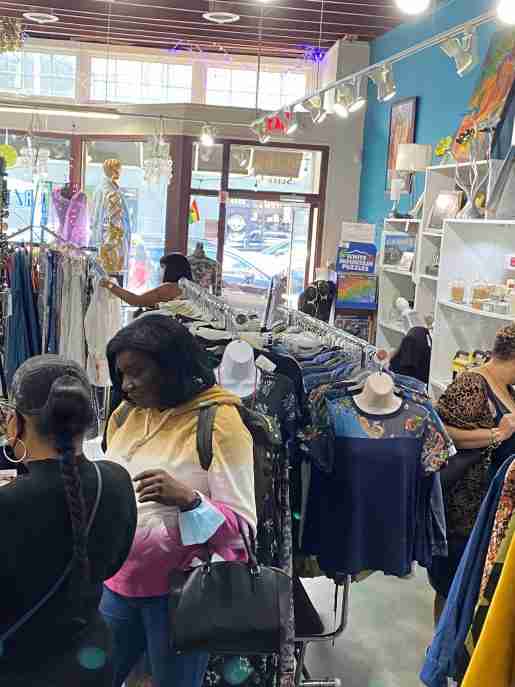 Shoppers photographed in the ArtLoft store. Customers get the benefit of help from staff members and the ability to Shoppers photographed in the ArtLoft store. Customers get the benefit of help from staff members and the ability topurchase a last-minute item. Where possible, Adadevoh-Woods buys from Black vendors, “but they are few and far between,” she noted. In today’s retail environment, costs are high, profit margins often low, and small-scale production a difficult proposition. 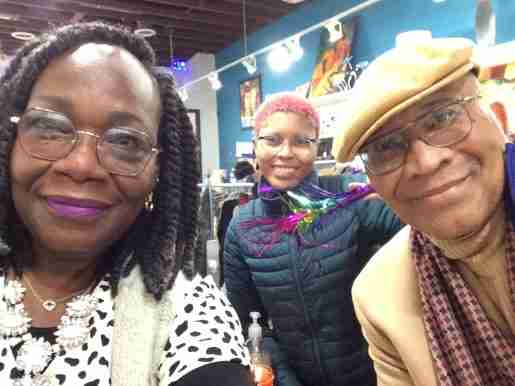 Of ArtLoft Midtown in Detroit, Mich.: Rachael Adadevoh-Woods, proprietor, sales and buyer; Whitney, sales and buyer; and Mr. Leon, sales and stylist. Adadevoh-Woods said her shop is a welcoming space. Of ArtLoft Midtown in Detroit, Mich.: Rachael Adadevoh-Woods, proprietor, sales and buyer; Whitney, sales and buyer; and Mr. Leon, sales and stylist. Adadevoh-Woods said her shop is a welcoming space.That’s the message that Jasmine McDonald, owner of Babes of the Wave in Los Angeles, would like to promote as well. McDonald launched her business in 2019, selling sunglasses and accessories online and complementing her e-business with pop-up sales events. Sunglasses and fashion studs are her top selling items; McDonald includes a personal thank-you note with every purchase she ships. 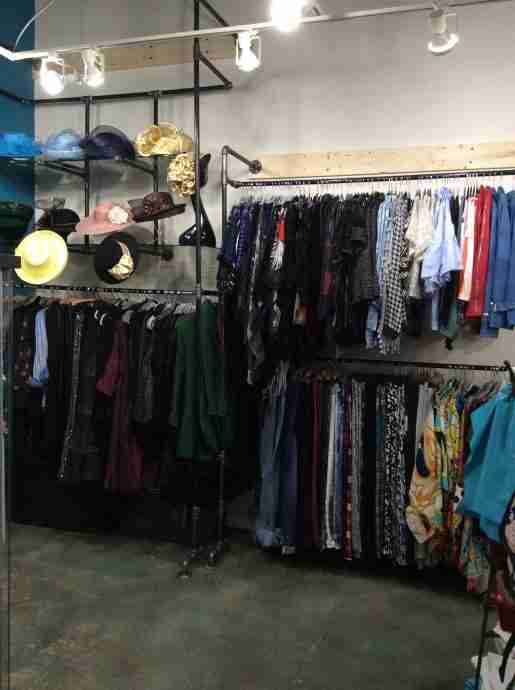 Apparel and hats on display at ArtLoft. Much of what the proprietor stocks is one-of-a-kind. In the case of apparel, she may stock one item type in four sizes only. Apparel and hats on display at ArtLoft. Much of what the proprietor stocks is one-of-a-kind. In the case of apparel, she may stock one item type in four sizes only.Three years in, Babes of the Wave has a devoted following of customers from diverse backgrounds. “When you support a Black business, you’re essentially supporting the dream,” said McDonald. “It’s important to keep the small businesses going; Ray-Ban doesn’t need it as much as we do. For me personally, it’s supporting a legacy I want to leave behind.” 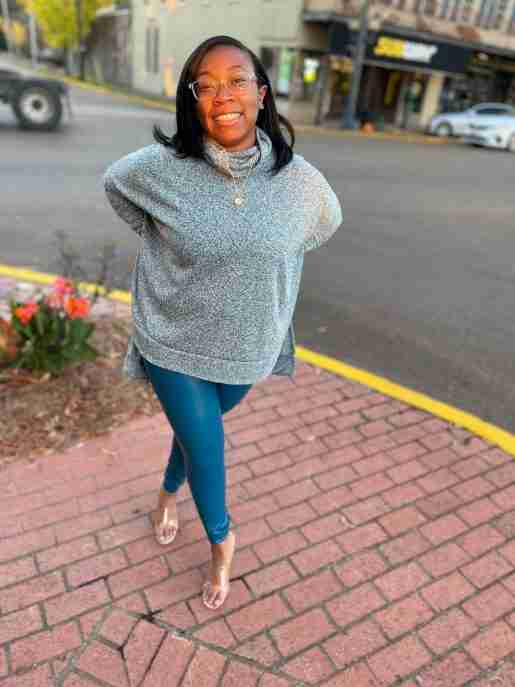 Beauty for Ashes Clothing and Candles Sales staff member Ahniya Myers. Shoppers love the store’s selection of candles and fragrances. Beauty for Ashes Clothing and Candles Sales staff member Ahniya Myers. Shoppers love the store’s selection of candles and fragrances.Across nearly four decades, Culture Exchange has become more than just a shop; it’s a community hub, and Neely’s customer service approach reinforces that. “Some people simply want to browse, and maybe they’re not prepared to spend right away,” he noted. “In time, if you’re respectful, they’ll eventually decide to support your business.” 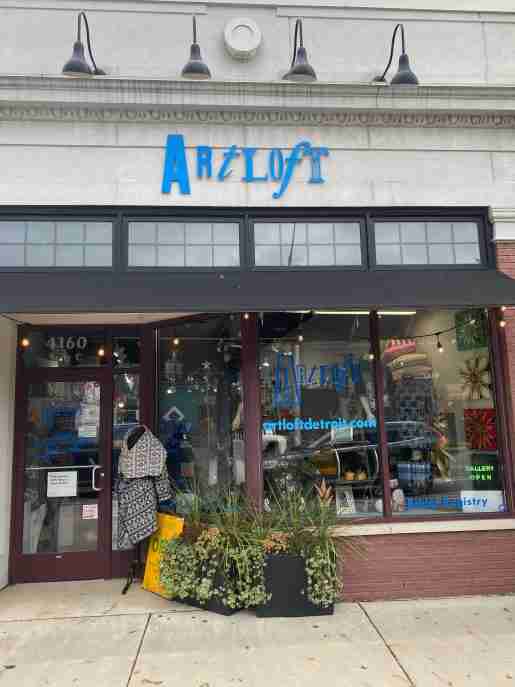 An exterior view of ArtLoft. After two decades in the suburbs, the owner wanted to be part of Detroit’s urban renaissance and moved into a 1,000-square-foot downtown storefront. An exterior view of ArtLoft. After two decades in the suburbs, the owner wanted to be part of Detroit’s urban renaissance and moved into a 1,000-square-foot downtown storefront.The 23-year-old business has a chic, boho aesthetic. Fashion, jewelry, art, stones and tarot cards represent both local vendors as well as lines from Africa, Israel, New York and Los Angeles. “We like to offer something a little bit different,” Bernard explained. When possible, Squash Blossom showcases Black vendors like Rebel Designs, a line of handmade jewelry and leather goods from Gina Riley. |
